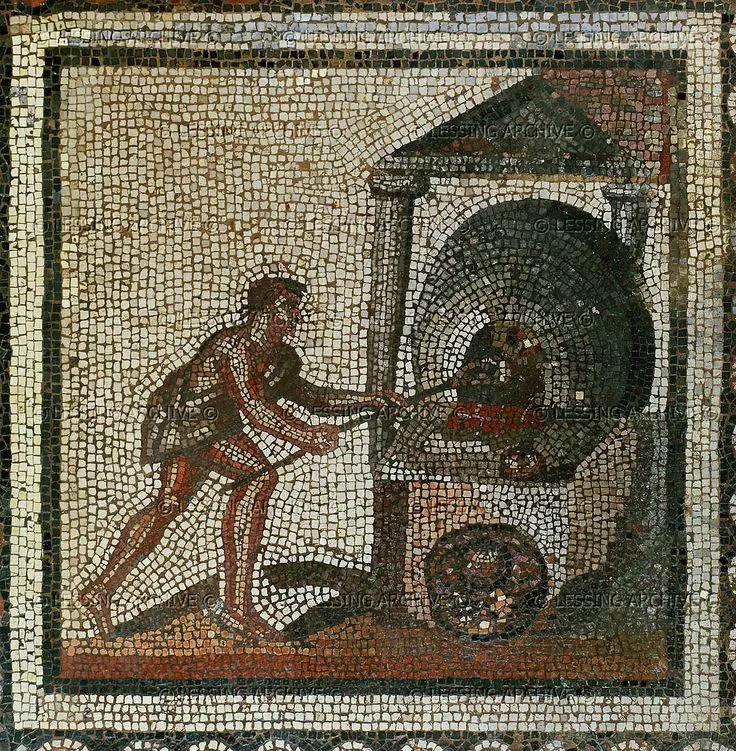
Hi all,
This is David Bergwerf from the Netherlands, and I am an enthusiastic amateur sourdough baker.
I am doing some research about interesting bread baking periods before baker's yeast period that begun after 1850. For instance, there seemed to be a flourishing bread culture in Rome where there were 85 different types of bread counted by local authorities. I wonder what kinds of bread were mentioned and how the breads were made, literally from grain to oven. Another story is about Cyprus: in early era many vessels made a quick stop in Cyprus, just because there was superior bread available that could only be found there.
Is there anyone in this forum that knows more about interesting bread baking periods? Also, if you are just as curious and enthusiastic as I am to know more about this topic and willing to start up a deep search, please contact me!
Happy Baking,
David
I have seen the ovens of Pompeii which are in remarkably good shape. I think of those bakers when I make bread in my masonry oven. They baked their breads without using a laser thermometer. : )
Hi Embth, Pompeii is really interesting. I wonder how they could make a bread with such perfect shape without mould. Although no molds were found, I still think they must have used some kind of molds that dissolved in the ashes.
that you can be sure of is that for thousands of years, millions of bread makers have made just about every bread you can think of using all kinds of grains, beans, fruits,nuts, seeds and who knows what else. Even though SD is ancient in nature, going back to at least the Egyptians thousands of years ago and is likely even older, not much bread was made wlth SD just like today. The reasons are simple enough. It takes too long to make SD bread, most people don't like sour bread, it costs more and is unconsistent - just like today.
In the scheme of things almost all bread made today is made with commercial yeast - even with the resurgence of SD today that brought it back from the near death. In ancient times before commercial yeast almost all bread was made with beer or wine barm - the yeast that commercial yeast today was derived from in the later 1800's. That is archaeologists find bakeries right next to or close to breweries - their source of yeast. Bread was a staple just like today and it had to be fast cheap and made in mass quantities.
Historically, SD was used by people who didn't have access to barm: travelers, pioneers and those that lived far away from breweries. My grand mother used SD on the farm because she was far from the nearest brewery and she was a tea toddler - so no no hooch ever crossed her doorway.. Don't get me wrong, just like today, there have always been people who prefer SD bread like the enthusiasts on TFL but the bread made pales in comparison to the quantity of loaves made with barm and commercial yeast even if the quality was doggy in comparison.
I was watching a PBS show not long ago about the history of Sourdough presented by a Culinary Paleontologist who said that those who make SD bread today, as in the past, are and were on the on the cutting edge of bread making since so few people were making it, there is more undiscovered territory, less is known about it and the future is brighter - plus the bread is better if you like sour bread and have plenty of time on your hands.
Happy SD baking
I haven't read anything by Ed Woods but, instead, have read about him. Here is one that might be of some interest to you.
http://www.amazon.com/World-Sourdoughs-Antiquity-Ed-Wood/dp/0962269468
Ed Wood was an American pathologist that went to work in the Mid-east (Egypt, Saudi Arabia ??) and developed an interest in bread, especially sourdough.
His blog. http://www.sourdo.com/
His short blog bio. http://www.sourdo.com/who-we-are/
As I said, I haven't read him but it looks like some interesting googling. Good Luck
P.S. Love Amsterdam but haven't been there since the early 70's.
If you're on Facebook, you should check out the group Bread History and Practice: https://www.facebook.com/groups/breadhistory/?fref=ts
The group is run by William Rubel, a bread historian; many other bakers and food historians contribute occasional posts or link to other content on the web.
Happy researching!
Scott
Hi Scott. Thanks a lot for this lead. I put my add in this forum and made some progress. Are you interested in this topic as well?